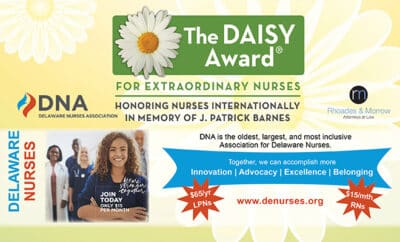First Responders

Workers’ Compensation may pay for the PTSD help they need
By Heather A. Long, Esquire
We ask so much from Delaware’s first responders when it comes to helping those in need. Police, Paramedics, EMTs, and Firefighters all risk their well-being every time they leave for work. They face both physical and emotional damages day after day; the mental strain of their work day is surely daunting to the average person.
Sadly, Delaware has had horrific deaths and injuries occur in our little state in the last few weeks. The average person is relatively insulated in their reading about these travesties, but first responders are thrust into the heart of these accidents, risking their lives to save the life of a stranger. Whether it is a fatal car accident, a death in the workplace, a homicide, or other traumatic accident, first responders care for and protect the most helpless and critically injured of all. Moreover, they do this day after day, after day.
The typical first responders portray themselves as invincible and compartmentalizes the violence they deal with on a daily basis. They are calm and controlled amid chaos and disorder. After their adrenaline wears off, they can re-live the worst moments over and over; seeing the same trauma, hearing the same sounds and smelling the same scents in their minds. Post-Traumatic Stress Disorder (PTSD) is a disorder that develops in some people who experience a shocking, scary, or dangerous event. We often see this in our Military Veterans community; however, it does not take a tour of combat to develop and struggle with PTSD symptoms. Any traumatic experience can trigger PTSD symptoms.
It is natural to feel afraid during and after a traumatic situation. But first responders must constantly push this fear to the side in order to put their job and responsibilities to our citizens first. Fear can trigger many split-second changes in the body to help defend against violence and danger. This “fight-or-flight” response is a typical reaction meant to protect a person from harm. First responders suppress that natural response in order to serve and protect.
Nearly everyone will experience some degree of PTSD symptoms following a traumatic event. Most people recover from the initial PTSD symptoms on their own, however those who do not immediately identify and address symptoms of PTSD may continue to have ongoing stress and anxiety. Those who continue to suffer from PTSD may suffer from insomnia, hypervigilance, stress, and self-destructive behavior.
Though PTSD is not a visible injury it falls under the definition of “occupational disease” for purposes of workers’ compensation. Therefore, if it can be proven that the PTSD is related to the work activities, the first responder may qualify for workers’ compensation benefits to treat the PTSD. These workers’ compensation benefits may include medical expenses and lost wage compensation.
Even the most qualified and experienced First Responders suffer the emotional consequences of a job that requires daily immersion in life and death circumstances. Firefighters and EMTs are statistically more likely to die of self-inflicted injuries than in the line of duty, with 87 line-of-duty deaths and 108 suicides verified by the Firefighter Behavioral Health Alliance. If you or a first responder that you know is showing signs of PTSD, quick access to care may go a long way in securing workers’ compensation benefits and peace of mind.
Navigating a work injury claim on your own can be difficult and stressful, even without PTSD. Adding a diagnosis of PTSD to your plate may make it nearly impossible to manage your workers’ compensation claim on your own. First responders dealing with PTSD will find having an advocate on their side to review and explain their potential entitlement to workers’ compensation benefits to be invaluable. Consultations with me are always free, and as stress-free as I can make them. You should expect nothing less from your attorney!
Heather has been an attorney for over ten years, and is currently practicing Workers’ Compensation and Personal Injury Law as a partner at Kimmel, Carter, Roman, Peltz & O’Neill, P.A. with offices in Newark and Wilmington. Heather worked her way through law school as a paralegal in a personal injury firm. After passing the bar exam, she spent several years working as a defense attorney, representing local, regional and national companies. With the knowledge gained about the inner-workings of these companies, she now represents injured workers and personal injury plaintiffs.
Heather is a graduate of Widener University School of Law, and the University of Nebraska- Lincoln. Prior to attending law school, she was licensed as a paramedic and spent time volunteering for her local ambulance corps. She is also a former mock trial coach for Friends and Salesianum and current coach for Newark High School.
Heather is licensed to practice law in Delaware, Pennsylvania and New Jersey.
For more information, or to schedule a free consultation, please call (302) 565-6132 or email her directly at [email protected]





